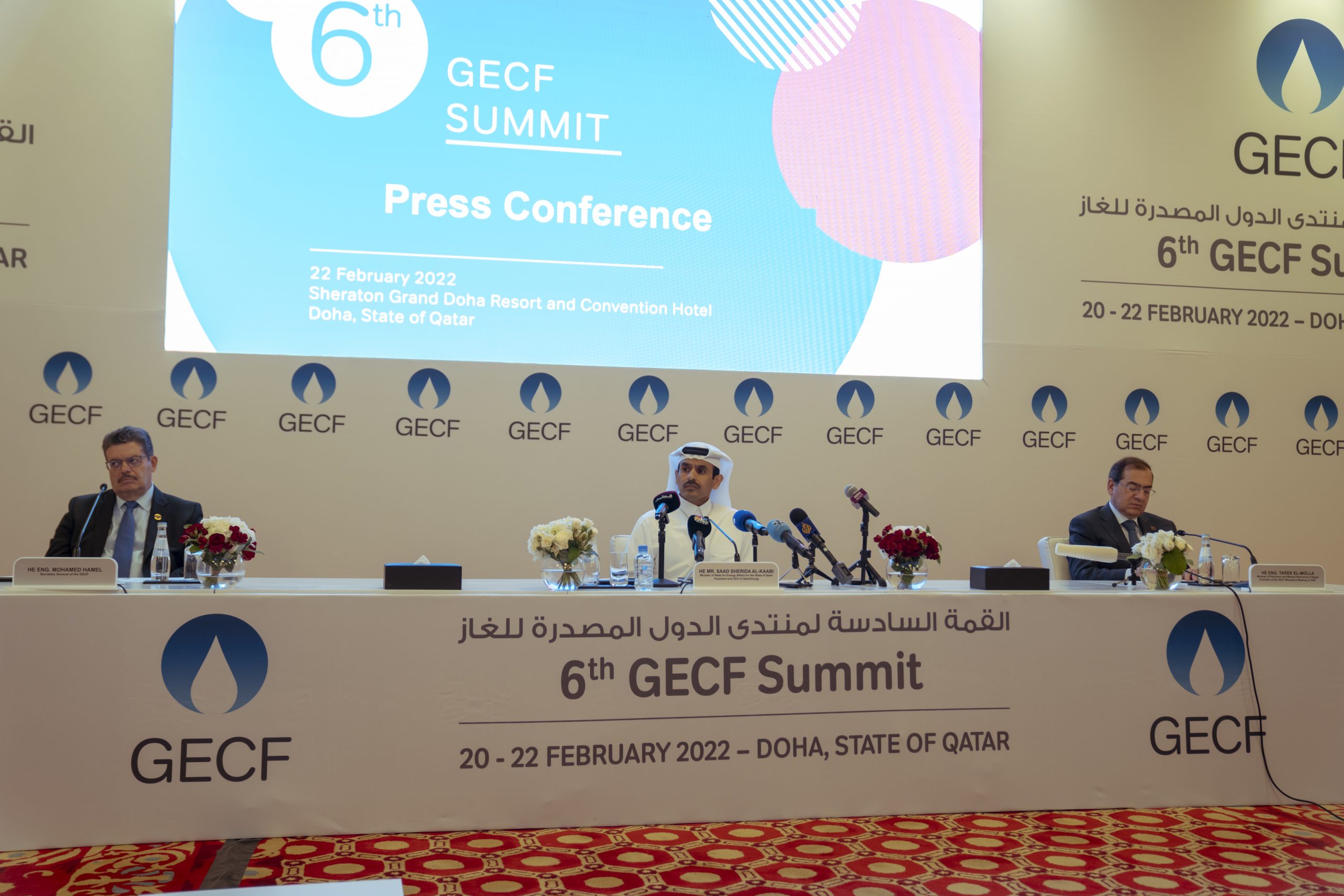The energy minister says that the issue of Russia-Ukraine was not discussed during the high-profile meeting.
Qatar’s Energy Minister Saad Al-Kaabi says that his country seeks to support Lebanon in its fuel crisis.
“Lebanon is a very dear country to our leadership and our heart as a nation and I think with the troubles that have happened we lost an opportunity. We had bid to go into Lebanon,” says Al-Kaabi, in response to Doha News.
“We won a tender offered by Lebanon and so on and then it was just delayed three-to-five years. I personally went to Lebanon a couple of times and I’ve discussed a few issues.”
Al-Kaabi’s comments come during a press conference in Qatar following the sixth Gas Exporting Countries Forum (GECF) summit on Tuesday.
Qatar’s Amir stresses importance of energy security at GECF summit
The event witnessed the participation of 11 members and seven observers of the forum under the invitation of Sheikh Tamim bin Hamad Al Thani.
Qatar and Lebanon were reportedly in talks last year to help alleviate Beirut’s power crisis. The situation worsened following the Covid-19 outbreak and the tragic Beirut explosion in 2020.
Speaking alongside Al-Kaabi, Egypt’s Minister of Petroleum and Mineral Resources Tariq El Molla says that his country has been working to provide Lebanon with gas.
“We used to export Egyptian gas to Lebanon, but for the last ten years this has stopped for obvious reasons. What we are currently doing for our Lebanese friends is that we are preparing ourselves to restart the exports of gas to Lebanon,” El-Molla tells Doha News.
Egypt used the Arab gas pipeline to supply Lebanon with gas until it faced what El Molla describes as “political and technical” disruptions.
El Molla says that the pipeline is currently being repaired to supply Lebanon with gas in “the coming weeks”. He explains that factors that have to be addressed in the process are commercial, contractual and political.
“We think we are progressing very well and the Lebanese have got all the support and reassurance that’s needed. I think we will resume sending gas in the coming few weeks,” says El Molla.
The US-backed plan to help alleviate Lebanon’s power crisis involves the flow of Egyptian gas using a pipeline passing through Jordan and Syria. The US Caesar Act imposed on the Bashar Al Assad regime would require countries to bypass them.
“The Egyptian solution is a quicker solution. We are trying to support LNG, but the LNG solution is a bit of a longer solution,” says Al-Kaabi.
Qatar says it cannot fill Europe’s gas supply alone amid Russia-Ukraine tensions
“On a longer term, we are still working to see how we can support Lebanon.”
Rise in Europe’s gas prices
The event took place as Russia and Ukraine’s tensions continue to rise, which in turn raises concerns over Europe’s energy supply.
Responding to a question over Europe’s energy supply, Al-Kaabi reiterates that the issue not centered on geopolitical tensions between Moscow and Kyiv. Instead, he says it is an issue of supply and demand.
“I think the issue of wanting stability is a two-side approach. You want stability in supply and stability in demand. The issues in energy prices in Europe started way before the Ukraine issue.”
The senior energy official also attributes Europe’s energy supply to the lack of investment in oil and gas.
“When you talk about LNG, it’s something that needs a long time to achieve. If you want to invest in LNG, you need to invest in the field itself…LNG is a very expensive business.”
Al-Kaabi notes that the impact of Russia-Ukraine tensions on Europe’s energy prices remains difficult to predict.
“With regards to prices’ predictions, that’s in God’s hands not mine. I cannot comment on the future.”
Reports stated that Qatar and the EU have been in talks to help secure Europe’s energy supply in the event of a possible Russian invasion of Ukraine. The energy minister maintained that the Gulf state cannot unilaterally fill the potential gap in Europe’s gas supply.
Iran to export 2.5 million barrels per day of crude oil if sanctions are lifted
On sanctions
Iran is amongst the members of the GECF and was the country that established the forum alongside Qatar in 2001. With Tehran still subjected to US sanctions following the withdrawal from the 2015 nuclear accord, it struggles to export its oil and gas.
Responding to a question over non-UN sanctions imposed on a GECF member, Al-Kaabi says that the matter has nothing to do with the forum.
“Regarding the politics of any country and how every sovereign country treats others or gets treated has nothing to do with the forum.”
Al-Kaabi says that the issue of Russia-Ukraine was not discussed during the high-profile meeting, adding that Qatar seeks to support other countries in times of need.
“There is absolutely, unequivocally no discussion on anything related to politics in this forum.”
__________________________________________________________________
Follow Doha News on Twitter, Instagram, Facebook and Youtube







